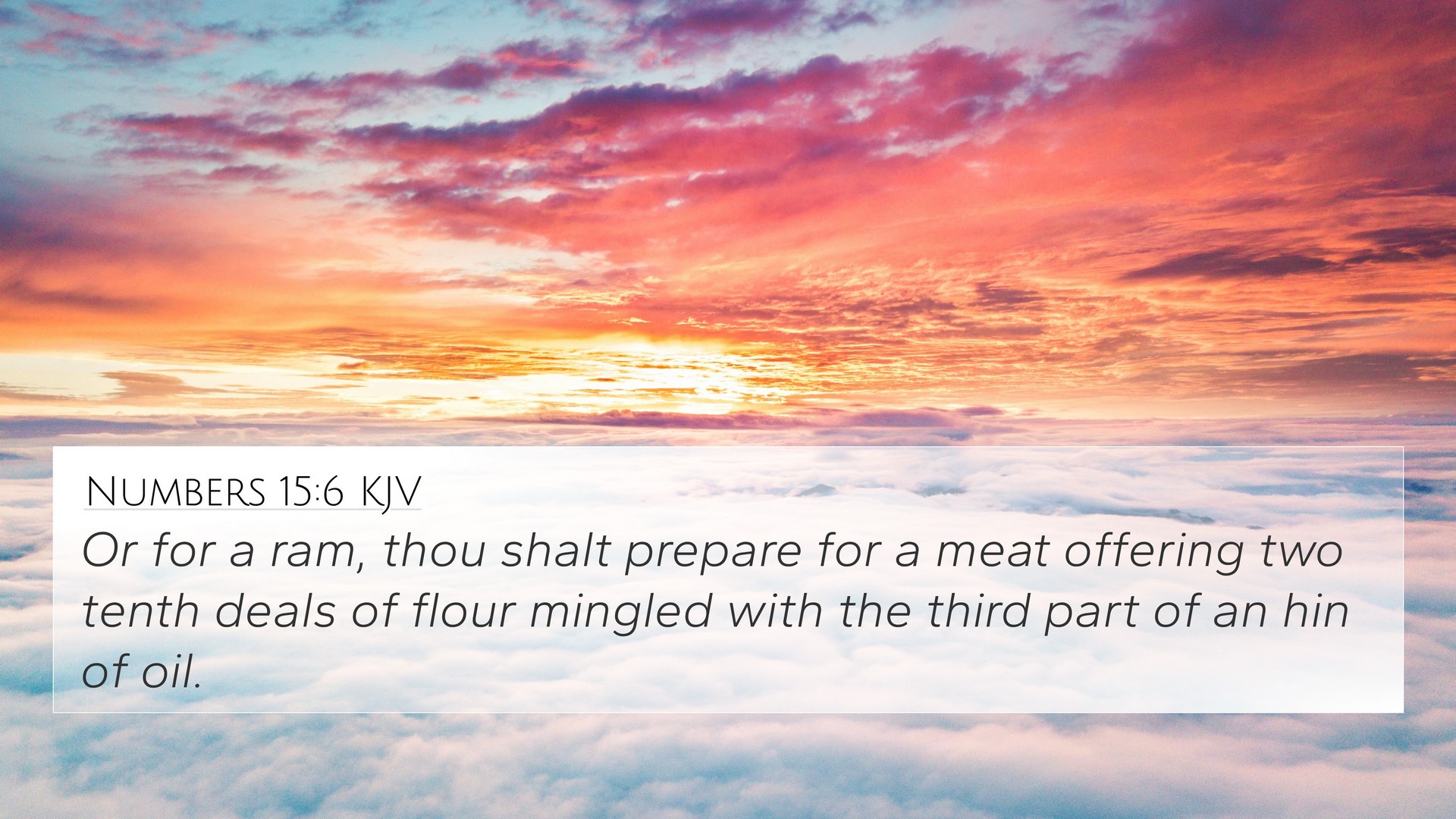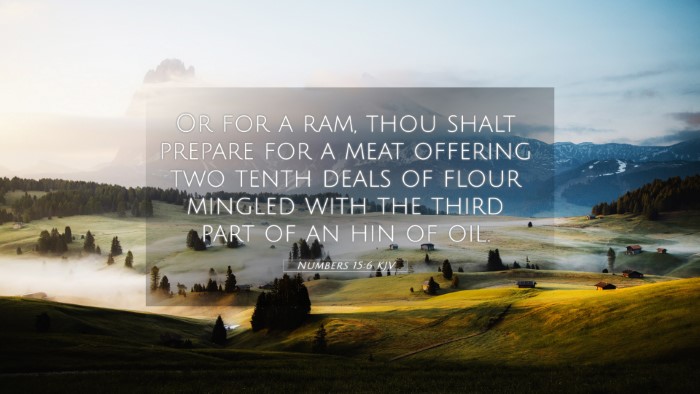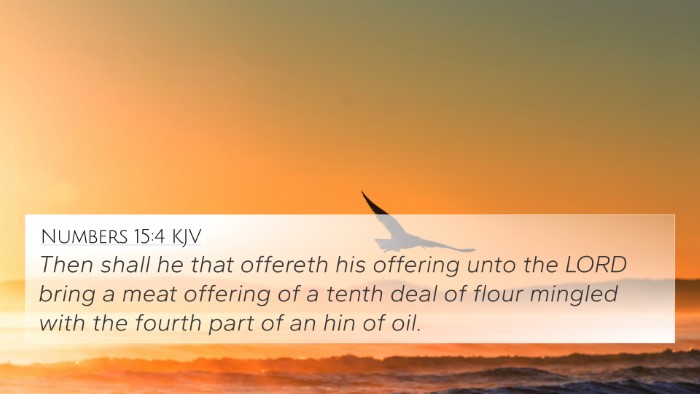Understanding Numbers 15:6
Verse: Numbers 15:6
Summary: This verse discusses the offerings to be made when a person offers a sacrifice to the Lord, detailing the specifications for the amount of flour and oil that should accompany the sacrifice.
Verse Meaning and Context
Numbers 15:6 serves as part of God's instructions to the Israelites regarding offerings and sacrifices. This chapter lays out the laws which govern the community as they strive to live according to God's commandments. The inclusion of detailed specifications for offerings reflects God's desire for order and intentionality in worship.
Insights from Commentaries
- Matthew Henry:
Henry highlights the importance of the specified amounts for offerings, seeing these as indicative of the gratitude and devotion the people should exhibit. He points out that a smaller offering does not imply lesser devotion but rather the heart's intention behind the offering.
- Albert Barnes:
Barnes emphasizes the significance of the flour and oil, suggesting they symbolize the abundance of God's provisions. He suggests that these offerings are a way for the people to acknowledge God’s goodness and the importance of dedicating a portion of their resources back to Him.
- Adam Clarke:
Clarke provides insight into the cultural practices surrounding sacrifices, noting that these meticulous instructions were culturally relevant and served to distinguish Israel from surrounding nations. He encourages readers to reflect on how such rituals can inform modern worship practices.
Connections Between Bible Verses
Understanding Numbers 15:6 can be enhanced through cross-referencing related scriptures. Here are notable verses that illustrate similar themes of offerings and devotion:
- Exodus 30:13: Discusses the half-shekel offering which serves as another instance of the Israelites responding to God’s commandments.
- Leviticus 2:1: Details the grain offering, which resonates with the flour aspect in Numbers 15:6.
- 1 Peter 2:5: Connects the idea of spiritual sacrifices now that believers are viewed as a holy priesthood.
- Malachi 1:11: Emphasizes the need for pure offerings, tying into the quality of the gifts presented to God.
- Hebrews 13:15-16: Encourages believers to continually offer sacrifices of praise, linking both Old and New Testament practices.
- James 1:17: Reminds that every good gift comes from God, prompting a response of gratitude, aligning with the spirit of sacrificial offerings.
- Philippians 4:18: Paul refers to gifts as a fragrant offering, signifying their importance in the context of worship.
Why Cross-Referencing is Important
Cross-referencing Bible verses enables a robust understanding of scripture. It reveals:
- Thematic connections across different books of the Bible.
- How the laws and commands given to the Israelites inform Christian practice today.
- Insights into the character of God based on His continual instructions throughout scripture.
Tools for Bible Cross-Referencing
For those looking to dive deeper into Biblical connections, various tools can assist:
- Bible Concordance: A reference tool that lists words and their occurrences in scripture, helping find related verses.
- Bible Cross-Reference Guide: Guides that connect themes, ideas, and specific references between verses.
- Cross-Reference Bible Study: Methods to explore scripture systematically and draw connections between passages.
- Bible Reference Resources: Compilation of study materials that facilitate understanding contextual ties in the scripture.
Conclusion
In summary, Numbers 15:6 serves as a reminder of the careful, intentional nature of worship God commands. By exploring relevant cross-references and insights from respected theological commentators, we can appreciate the richness of God’s instructions and how they connect scripture across both the Old and New Testaments.




